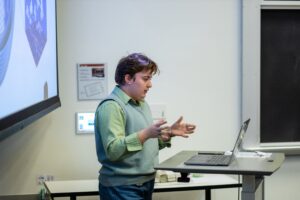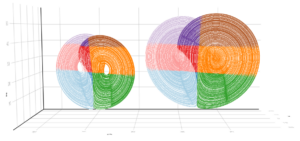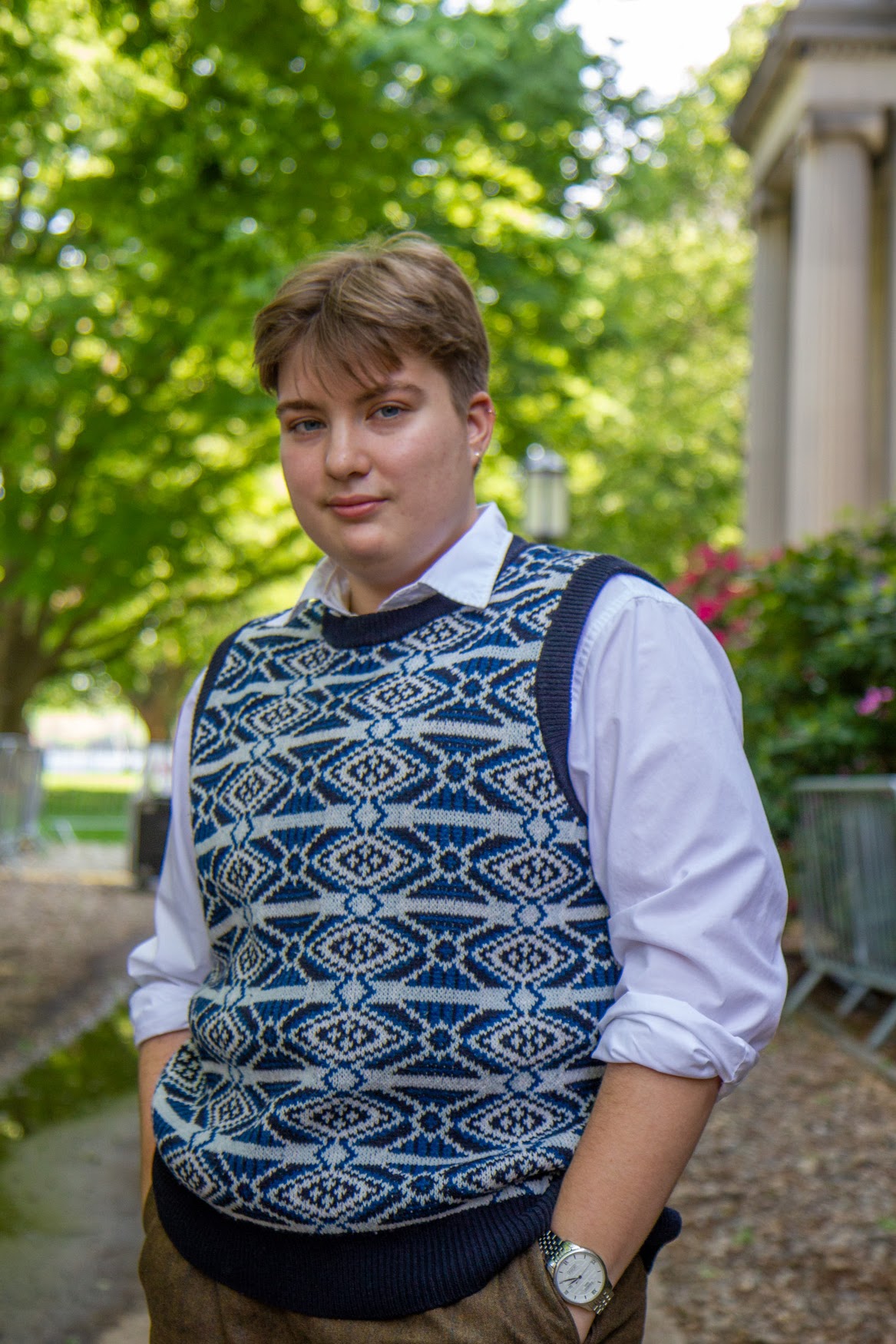Student Spotlight: Applying Mathematical Models to Predict Extreme Events under Climate Change
September 13, 2023

MIT student Gosha Geogdzhayev’s research bridges abstract mathematics and climate science. Recently, through the MCSC Climate & Sustainability Scholars Program, Gosha had the opportunity to work on applying mathematical system thinking to predict extremes in a simple chaotic system as a proxy for the more complex Earth’s climate system. He worked with researchers in MIT’s Department of Earth, Atmospheric, and Planetary Sciences (EAPS), including Andre Souza, Research Scientist, and Raffaele Ferrari, Cecil and Ida Green Professor of Oceanography in EAPS. His project, entitled “Using Continuous Time Markov Chains to Project Extreme Events under Climate Change,” contributed to the Flagship Climate Grand Challenges project that Professor Ferrari is leading along with Professor Noelle Eckley Selin – work Gosha intends to continue pursuing this upcoming academic year.
Gosha’s Research: Applying Mathematical Models and Climate
Prior to the MCSC’s Climate & Sustainability Scholars Program, Gosha participated in MIT’s Undergraduate Research Opportunities Program (UROP); his project started with an investigation of how to describe and track changes in the extreme states of chaotic mathematical system thinking, such as the Lorenz 63 system, shown below.

These two “butterfly attractors” were generated under two different “climates”, which led to a difference in the amount of time the system spent in different states (marked with different colors)
The MCSC Scholars Program provided Gosha with an opportunity to continue to develop a statistical framework, which he is now working to apply to the question of extreme events in the Earth’s climate system. The program also fostered a community for undergraduate students who are all focused on sustainability- and climate- related interests, studies, and research.
“Since I am a physics major, I don’t necessarily interact with other undergraduates that are interested in climate very often,” said Gosha. “Some of the other Scholars’ projects that I learned about were a bit more applied and relevant to the immediate combatting of climate change, which I really respect.”
When speaking about his own research journey at MIT, Gosha explained, “I am extremely proud of both the continuity and the work itself. It has been rewarding to see the project evolve over a year and a half.”
Gosha’s project started with a more theoretical approach, but through the MCSC Scholars program, the project transitioned into producing predictions of extremes in the very physical context of the climate.
Reflecting on his work in the Scholars Program, Gosha notes that innovation comes from the way of thinking about the problem.

“Innovation isn’t so much the data that we are working with as it is the abstraction, where we are taking a method that had been developed with an eye toward a very abstract mathematical system and applying it to the very real question of climate change.”
Guided by Professor Ferrari, Gosha and the rest of the research team took a step back from the complex system and theorized how it could be simplified. One way the team did this was by focusing on a specific task and statistic, to see how that will change in the future, in order to determine if all the original information is needed. This approach sometimes yielded outcomes the team did not anticipate – pushing the research further.
“The moment when you get a result that prompts you to think has been one of my favorite parts of the research process so far,” Gosha said. These results can often be surprising, occurring on the tail end of debugging code and prompting further reflection and analysis.
One way Gosha interacted with his findings was through the creation of a short informational “Ted Talk” video. The aim was conveying his findings in a way that would be accessible to audiences of all academic backgrounds.
Industry Applications
As Gosha continues to work on his research project, he is moving the project toward applying it to real earth data and engaging more actively in the Climate Grand Challenges project entitled ‘Bringing computation to the climate challenge’ (BC3). The BC3 team’s goal is to use climate information to create a framework in order to increase the accuracy of climate models, but also to develop fast emulators of the climate models to make their predictions more accessible to stakeholders outside the climate science community. Democratizing access to climate projections is valuable to individuals, industries and governments to build resilience and plan around severe climate and weather issues. The work within the Climate Grand Challenge provides a test bed for model and emulator development. This will provide opportunities for companies to test early versions of the emulators to provide iterative feedback and make design more robust to current and future needs. Gosha’s research is contributing to the development of these emulators to bridge the gap between the science community and the end users of climate information.
Beyond his final year at MIT, Gosha hopes go on to graduate school and achieve a PhD within the same field of study.
